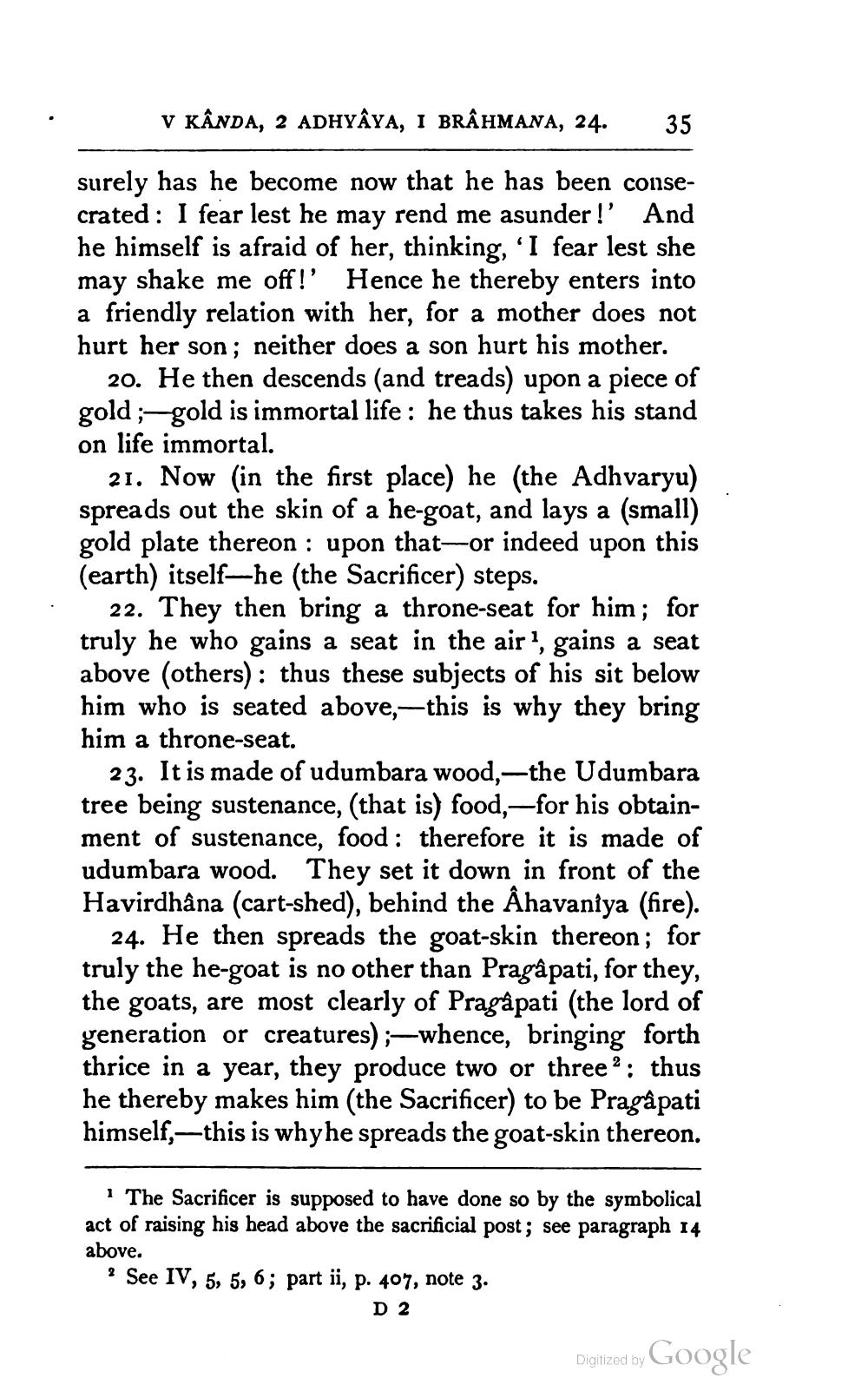________________
V KÂNDA, 2 ADHYÂYA, I BRÂHMANA, 24.
35
surely has he become now that he has been consecrated : I fear lest he may rend me asunder!' And he himself is afraid of her, thinking, 'I fear lest she may shake me off !' Hence he thereby enters into a friendly relation with her, for a mother does not hurt her son; neither does a son hurt his mother.
20. He then descends (and treads) upon a piece of gold ;-gold is immortal life: he thus takes his stand on life immortal.
21. Now (in the first place) he (the Adhvaryu) spreads out the skin of a he-goat, and lays a (small) gold plate thereon : upon that-or indeed upon this (earth) itself-he (the Sacrificer) steps.
22. They then bring a throne-seat for him; for truly he who gains a seat in the air ?, gains a seat above (others): thus these subjects of his sit below him who is seated above, this is why they bring him a throne-seat.
23. It is made of udumbara wood,—the Udumbara tree being sustenance, (that is) food,-for his obtainment of sustenance, food: therefore it is made of udumbara wood. They set it down in front of the Havirdhana (cart-shed), behind the Åhavaniya (fire).
24. He then spreads the goat-skin thereon; for truly the he-goat is no other than Pragâ pati, for they, the goats, are most clearly of Pragâpati (the lord of generation or creatures) ;-whence, bringing forth thrice in a year, they produce two or three 2: thus he thereby makes him (the Sacrificer) to be Pragâ pati himself,—this is why he spreads the goat-skin thereon.
The Sacrificer is supposed to have done so by the symbolical act of raising his head above the sacrificial post; see paragraph 14 above. ? See IV, 5, 5, 6; part ii, p. 407, note 3.
D 2
Digitized by Google




